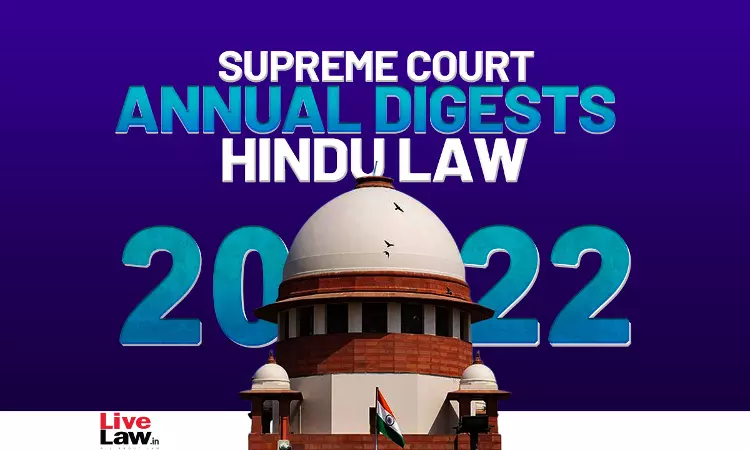- Home
- /
- Top Stories
- /
- Supreme Court Annual Digest 2022-...
Supreme Court Annual Digest 2022- Hindu Law
LIVELAW NEWS NETWORK
11 Jan 2023 10:31 AM IST
Family Courts Act, 1984 Family Courts Act, 1984 - The Family Courts Act is not a standalone Act. It draws sustenance from Acts like the Hindu Marriage Act. This is for the reason that a petition within the meaning, for instance, of the Hindu Marriage Act, after a Family Court is established in India, is to be dealt with by the Family Court, on the grounds as provided under the...
Next Story



